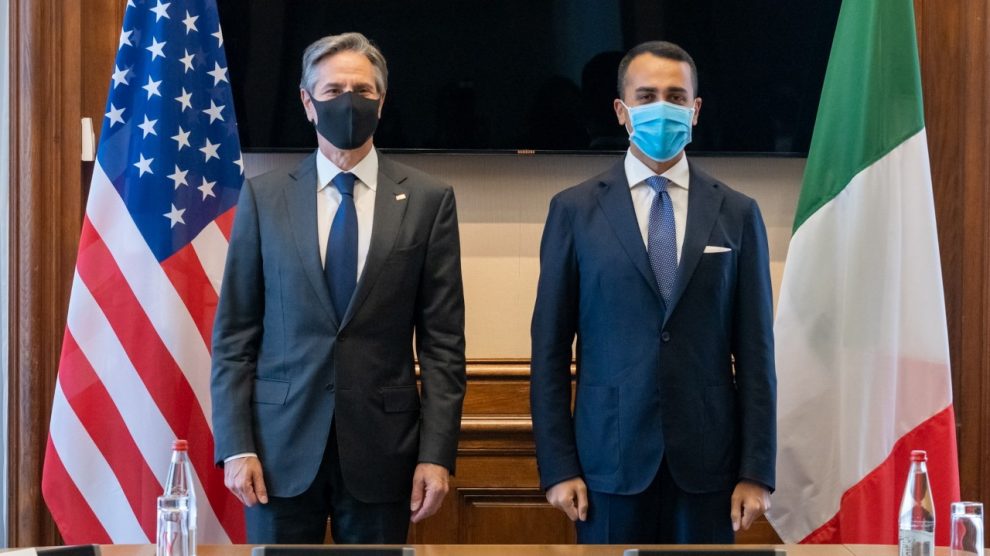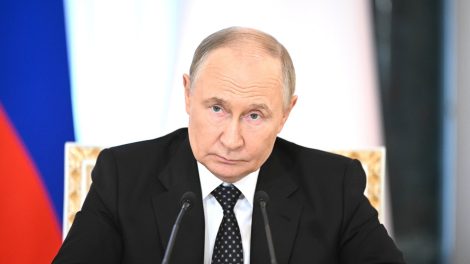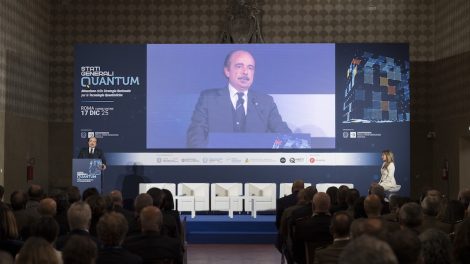Defending Lithuania from “increasing political pressure and economic coercion” by China is a priority for Joe Biden’s United States, which is trying to push allies and partners – including Italy – to Vilnius’s side in the face of Beijing’s behaviour.
Relations between China and Lithuania have been steadily worsening over the past months. Beijing downgraded relations yet again after Vilnius’ decision to give the go-ahead for the opening of a representative office in Taiwan.
After the European Commission tried not to get involved in the matter, Lithuanian President Gitanas Nausėda recently told Žinių Radijas, a radio station: “I don’t think the opening of the Taiwanese office was a mistake. I think the name was, though, as it was not coordinated with me.” A matter of semantics, underscoring Vilnius’ resolve in nurturing relations with Taipei regardless of Beijing’s woes.
Washington deeply approves of this stance. US Secretary of State Antony Blinken himself reiterated that the US stands with Lithuania on December 21, during a telephone call with Lithuanian Prime Minister Ingrida Simonyte.
The head of US diplomacy had stressed the American “support” for Lithuania and reiterated “the commitment of the United States to work with like-minded countries to reject the coercive diplomatic and economic behaviour of the People’s Republic of China.”
Exploring the readouts
This matter was further discussed more recently, Mr Blinken’s talks with the foreign ministers of the Bucharest Nine – a group of countries representing NATO’s Eastern flank that includes Bulgaria, Estonia, Latvia, Lithuania, Poland, the Czech Republic, Romania, Slovakia and Hungary.
As State Department spokesman Ned Price explained, high up on Mr Blinken and the Nine’s agenda was the situation in Ukraine, with Russia’s “destabilising military build-up” along the border and “the US commitment to continued close consultation and coordination with all of our Transatlantic Allies and partners as we work toward de-escalation through deterrence, defence, and dialogue.”
The State Department’s note on the talks goes on to mention the Lithuanian issue, which had already been the focus of Mr Blinken’s phone calls with his Italian counterpart Luigi Di Maio on December 31, as well as those with the officials of France (Jean-Yves Le Drian), Germany (Annalena Baerbock) and the United Kingdom (Elizabeth Truss) on December 29, and that with the European Union’s High Representative for Foreign Affairs and Security Policy Josep Borrell on December 22.
Washington’s notes after the Secretary of State’s talks with all his counterparts, including those of the Bucharest Nine, all used the same formula. They emphasised “solidarity with Lithuania in the face of escalating political pressure and economic coercion by the People’s Republic of China.”
The phone call with High Representative Borrell also mentioned “shared concerns” and adds that such practices “are impacting both US and European companies.” According to the readout of the conversation with FM Di Maio, they “risk US and European prosperity and security.” However, only the American reconstruction of the conversation features the reference to Lithuania, which is missing from the Italian Ministry of Foreign Affairs’ communiqué.
Italian views: Formentini (League) and Alfieri (Democratic Party)
“The US and NATO are very clear,” said Paolo Formentini, League MP and vice-president of the Lower House’s Foreign Affairs Committee. “It would be nice if the EU were too. Instead, [the latter] is mocked by Chinese Foreign Minister Wang Yi precisely because of the absence of a well-defined foreign policy.”
Mr Formentini’s fear is that “the much-vaunted ‘third European way’ between the US and China, if it ever comes to fruition, will only weaken the West, which is one of Beijing’s objectives.” In this sense, considering the reasons for the clash between Lithuania and China, “the unity of the West will have to manifest itself in the defence of Taiwan: if Taiwan falls, the West falls.”
“What the US is doing in the theatre that interests them most – that is, the Indo-Pacific – is understandable,” observed Alessandro Alfieri, senator of the Democratic Party and secretary of the Senate’s Foreign Affairs Committee. “I think, however, that we need a qualitative leap. Working on a bilateral level may help to contain a situation but risks missing the final objective.”
Hence, Mr Alfieri believes that on matters concerning China “the US must talk, if not with the EU as a whole, at least with the hard-core that has rebuilt itself in recent times,” i.e. France, Germany and Italy, who nonetheless remain interested in keeping the channels of commercial dialogue with China open. “Italy should push for a united EU position in the face of Chinese economic penetration which, as shown with the Belt and Road Initiative, often turns into political influence,” he concluded.





